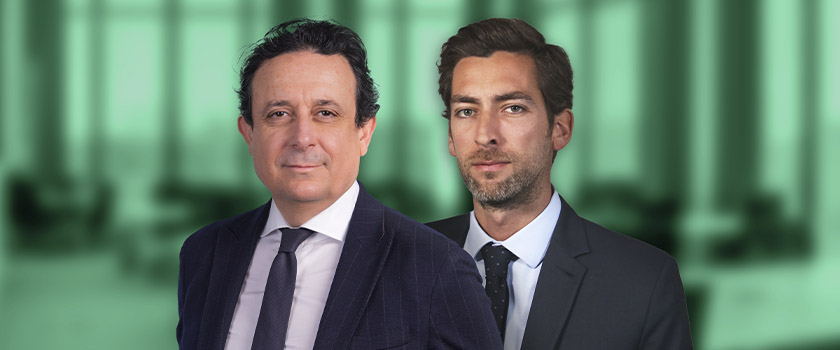Le Temps - (19.06.2023) - History has shown that it’s often worth taking the plunge into an investment even when some uncertainty remains, provided risk is managed effectively.
Fortunately private banking has evolved a lot and now has as much technical sophistication as institutional asset management. This is good news for our financial sector as active wealth management and portfolio risk management happen to be in its DNA.
In the past two years play has been rough on the finance pitch. In times of uncertainty the temptation is high to stay on the sidelines and wait for the perfect moment to join the game. However, while making sure everything is safe before engaging may seem the responsible thing to do, experience has shown that when it comes to investment, extreme caution is not always advisable.
Because by delaying for too long you will pass up opportunities. In fact, research has shown that missing out on the ten best trading days in the last thirty years could cost an investor half their performance1!
Anticipate and be equipped
The speed of information, globalised economies and geopolitical discord are making things change ever faster and more drastically. Investors need to be pragmatic and keep up. But when is the best time to go for it? How do you anticipate reversals? What you need is quantitative asset allocation tools, because to take risks you need to pinpoint and weigh them up.
An aeroplane pilot has many measuring instruments that make the flight safer. So why should the ‘pilot’ of your portfolio have to rely on guesswork using obsolete and inefficient tools?
Private banking as technical as asset management
Thankfully, wealth management in most institutions has changed a lot in twenty years and has now reached the same level of technical detail as institutional asset management. For decades the average portfolio in a Swiss private bank followed the 60–40 principle – that is 60% in equity or other riskier assets and 40% in fixed income – but asset allocation has now become much more dynamic and sophisticated.
In these times where the amount of uncertainty outweighs what we can be sure of, state-of-the-art tools are needed. Disruptions happen so fast nowadays that it would be dangerous to keep a portfolio static, and a manager cannot do without sophisticated software to help with decisions.
If you want a powerful car that accelerates fast, it also needs to have strong brakes and good shock absorbers. In the same way, any self-respecting private bank will come up with novel solutions – using such instruments as structured products or derivatives – to give its portfolios an asymmetric risk profile, that is, high upside potential and low downside risk.
The tidal wave of ETFs – the darlings of passive management – created the illusion that such a management style was the way to go. But after over ten years of bull market, the trend seems to have shifted. To protect clients’ capital in these roller coaster markets, investors need to react fast to separate the wheat from the chaff.
So it is vital for our financial centre not to give up asset management and to prevent third-party funds from taking over. While open architecture’s apparent lack of conflict of interest can make it seem attractive, it also has its hazards, not least because the purpose of the selectors is not to make bets or take risks.
Quite the contrary: by setting a number of very strict criteria, they tend to rule out the best-performing and most innovative funds, thereby depriving themselves of many opportunities. This is why it is essential for private banks to maintain solid wealth and asset management expertise.
And as it happens, active management is part of the very essence of our financial centre. Geneva’s private banks have long been renowned for this: they have widely recognised skills in the construction of diversified and international portfolios, discretionary management, and the creation of bespoke solutions.
Unlike many other countries where financial institutions focus on domestic portfolios and clients, Switzerland has a long tradition of taking the global view. This is a strength we must preserve and develop.
Human beings over machines
To do so we must put our money where our mouth is, so to speak. That means investing not only in equipment but also in brains, because what will determine our future will be our ability to read the markets, assess risk and offer solutions.
What will make the difference will not be machines, it will be humans and their capacity for thought, enabling them to design and build sophisticated measuring and risk-management instruments. It will also be talented pilots with the skills to handle the unexpected and take the right decisions quickly.
1Source: Ned Davis Research, Morningstar and Hartford Funds, February 2023









